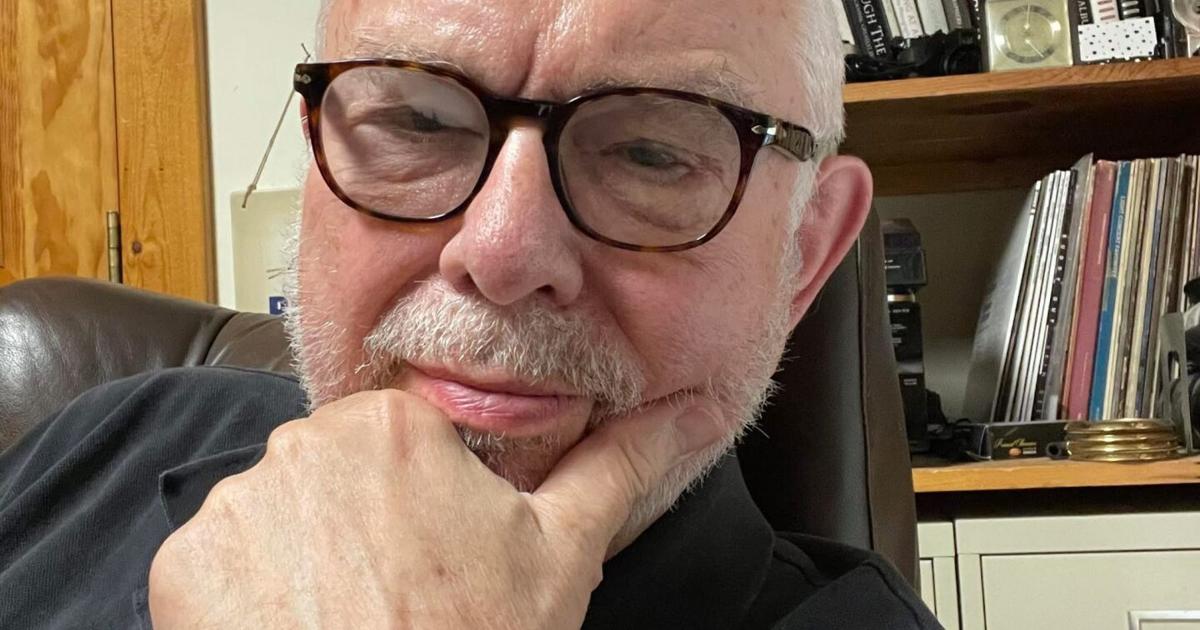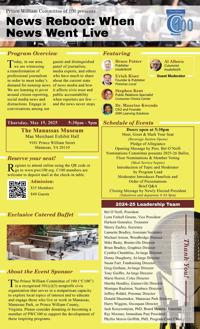In 2012, the Prince William Committee of 100 hosted a panel on the “Future of News.” At the time, I was a citizen journalist reporting on things I thought newsworthy on my blog (albornbiz.blogspot.com).
I reported on that panel discussion as part of a post titled, “The future of news.” On May 15, the Committee of 100 will revisit the future of news in a panel titled “News Reboot: When news went live.”
At the time of the 2012 panel, Tara Slate Donaldson was managing editor of The Gainesville Times. She acknowledged that there would be lots of business plans launched with little real understanding of which one would win.
Lots of experiments in delivering the news are still in play. We still aren’t sure which one will win. That being said, the hard-copy newspaper has survived. Some will be reading this column in a copy of InsideNoVa/Prince William delivered to their house and some in the e-edition online or on InsideNoVa’s website – while many will wait for the Facebook version to pop up in their feed.
The Zen koan, “If a tree falls in the forest and no one is around to hear it, does it make a sound?” explores the nature of reality and perception, particularly the role of the observer. The same principle applies to news. If a child dies in the woods, and no one is around to report it, is it news? Someone has to observe the news and decide whether something is newsworthy. How they report it matters.
Webster’s Dictionary defines a journalist as a person whose job is to gather, write or report news. Social media, blogs, podcasts and other emerging ways to communicate have made this the age of the citizen journalist. Citizen journalists often focus on specific subjects and audiences. Some of the content they create is excellent; some not so much. News consumers are faced with a tidal wave of available sources for the subjects in which we are interested.
Artificial intelligence is quickly evolving as another source of news. ChatGPT is a good example. You can ask it any question and get a reasonably accurate answer that draws from across the web, often using intellectual capital created by others.
So how do you choose? For local news outlets, membership in the Virginia Press Association identifies those that follow a standard of ethics and are interested in the training it offers to ensure quality reporting. Several excellent citizen-journalists are running micro-news mediums to share information with their target audiences. There are also several social, political or propaganda outlets with the specific goal of perhaps distorting the news to achieve some specific outcome or pander to specific groups.
The best way to develop news sources you trust is to fact-check anything that appears to be dubious. Some people won’t bother because they are just looking for confirmation of what they believe. Others will do so because they care about facts and the truth. Truth matters. Go beyond the out-of-context quote or meme and look below the surface. Develop news sources you trust.
Learn more about the Committee of 100’s panel and register at pwc100.org. Pull out your smartphone and make some news on social media.
In the free market of news, the most accurate, reliable and entertaining news outlets win. They will survive – whatever the future of news turns out to be.
Al Alborn is an award-winning columnist and member of the Virginia Press Association. You can learn more about Al at alborn.net.

